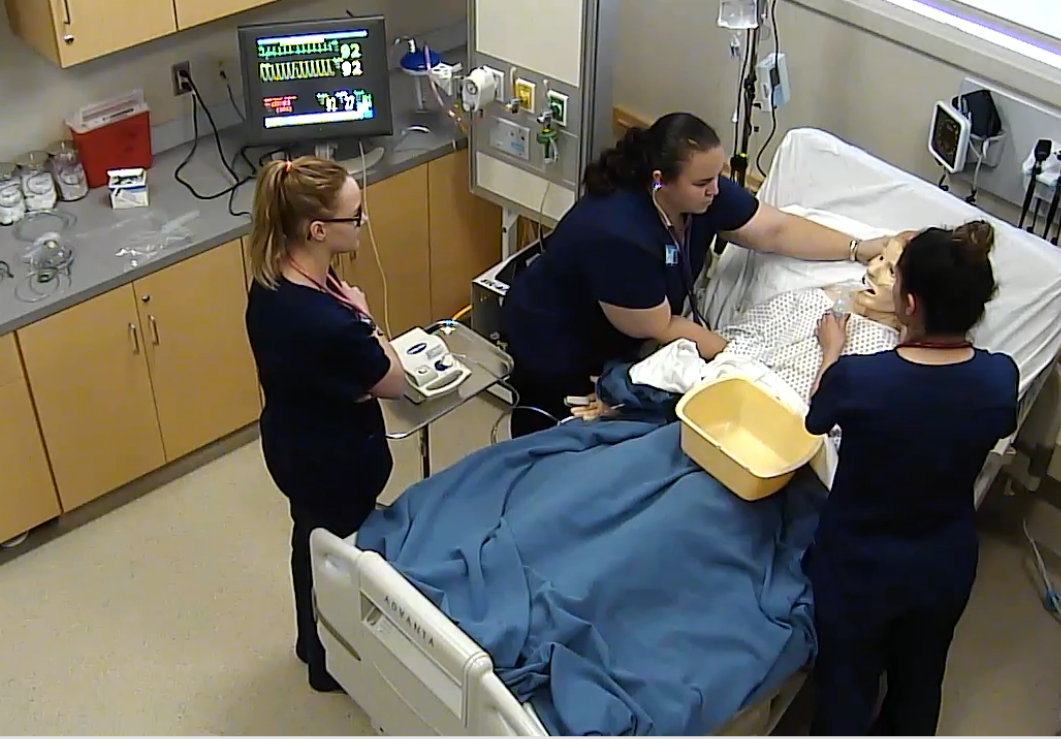Running Simulation Scenarios in Spanish: Increasing Cultural Communication

BBCC nursing students had an awesome opportunity to run through a simulated asthma scenario in which the patient and the family members only spoke Spanish. Two of our Spanish speaking bilingual students played the roles of patient voice and family member.
Our charge nurse and nursing team were tasked with communicating effectively so that the patient would feel understood and comfortable with the outlined treatment. This scenario is a critical part of learning how to provide quality healthcare because “lack of communication creates situations where medical errors can occur” (O’Daniel & Rosenstein, 2008).
Jennifer Brooks, BBCC Nursing Faculty, agrees that “these kinds of experiences in a safe and simulated setting give our students an opportunity to learn how to provide quality care regardless of language barriers.” Additionally, in this scenario, some of the members taking on the role of the nursing team were also bilingual in Spanish. This elevated the entire simulation experience.
Specifically, the bilingual students in the nursing role were able to communicate with the patient and her family member while simultaneously mentoring the others on the healthcare team who were not speaking Spanish. Brooks highlights this mentoring role by affirming that “it gave students an opportunity to work together and build off of each other’s strengths.” The students who did not speak Spanish fluently felt that they gained a lot through this experience.
In the end, the simulated patient was able to receive quality treatment for her asthma attack as well as excellent therapeutic communication. Meanwhile, our nursing students were able to walk away with a deeper understanding of cultural communication considerations and the importance of capitalizing on the skills of your team.
Reference
O’Daniel M, Rosenstein AH. Professional Communication and Team Collaboration. In: Hughes RG, editor. Patient Safety and Quality: An Evidence-Based Handbook for Nurses. Rockville (MD): Agency for Healthcare Research and Quality (US); 2008 Apr. Chapter 33. Available from: https://www.ncbi.nlm.nih.gov/books/NBK2637/

